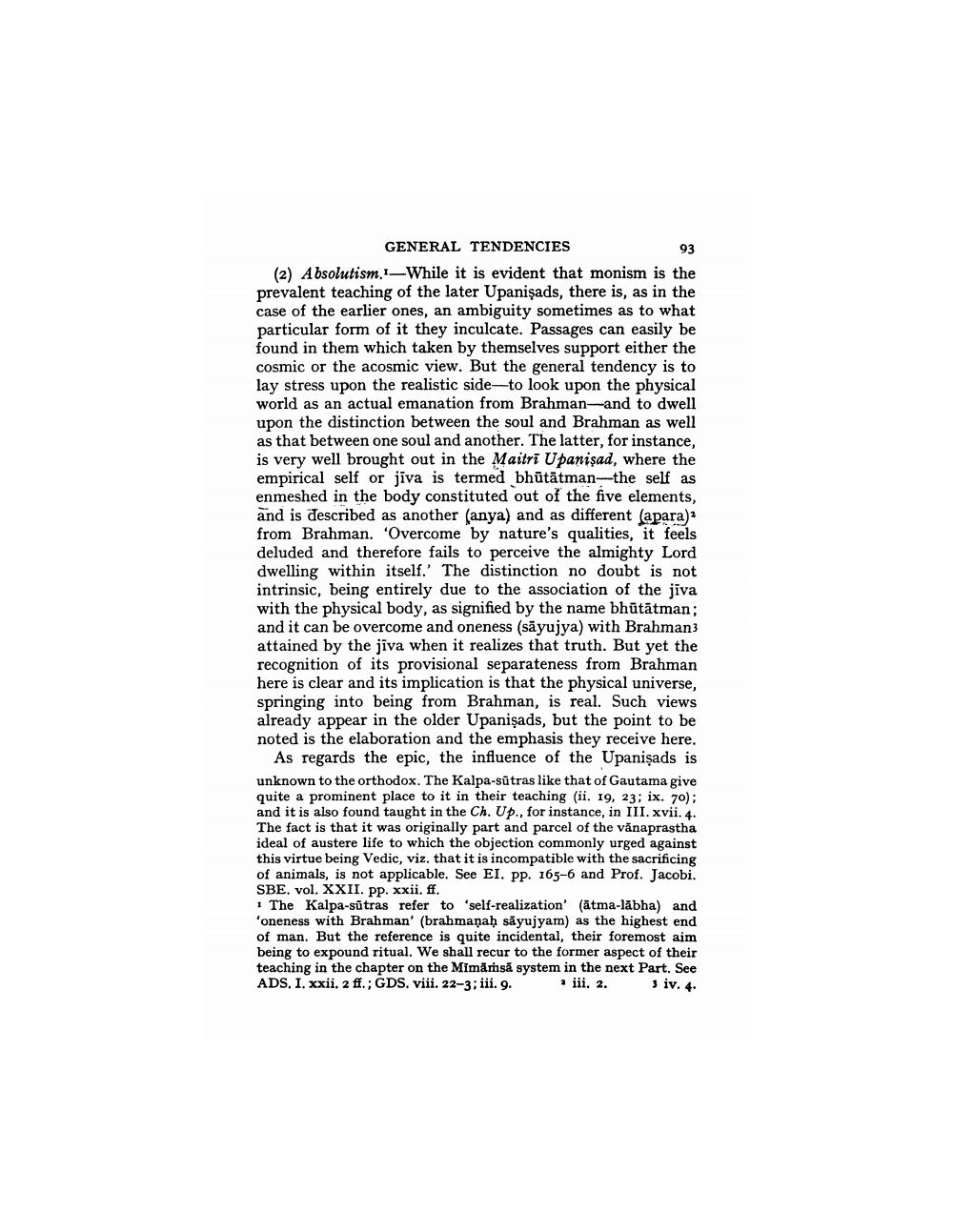________________
GENERAL TENDENCIES
93 (2) Absolutism. 14-While it is evident that monism is the prevalent teaching of the later Upanişads, there is, as in the case of the earlier ones, an ambiguity sometimes as to what particular form of it they inculcate. Passages can easily be found in them which taken by themselves support either the cosmic or the acosmic view. But the general tendency is to lay stress upon the realistic side-to look upon the physical world as an actual emanation from Brahman-and to dwell upon the distinction between the soul and Brahman as well as that between one soul and another. The latter, for instance, is very well brought out in the Maitri Upanişad, where the empirical self or jīva is termed bhūtātman--the self as enmeshed in the body constituted out of the five elements, and is described as another (anya) and as different (apara) from Brahman. 'Overcome by nature's qualities, it feels deluded and therefore fails to perceive the almighty Lord dwelling within itself.' The distinction no doubt is not intrinsic, being entirely due to the association of the jiva with the physical body, as signified by the name bhūtātman; and it can be overcome and oneness (sāyujya) with Brahman3 attained by the jiva when it realizes that truth. But yet the recognition of its provisional separateness from Brahman here is clear and its implication is that the physical universe, springing into being from Brahman, is real. Such views already appear in the older Upanişads, but the point to be noted is the elaboration and the emphasis they receive here.
As regards the epic, the influence of the Upanişads is unknown to the orthodox. The Kalpa-sūtras like that of Gautama give quite a prominent place to it in their teaching (ii. 19, 23; ix. 70); and it is also found taught in the Ch. Up., for instance, in III. xvii. 4. The fact is that it was originally part and parcel of the vănaprastha ideal of austere life to which the objection commonly urged against this virtue being Vedic, viz, that it is incompatible with the sacrificing of animals, is not applicable. See EI. Pp. 165-6 and Prof. Jacobi. SBE. vol. XXII. Pp. xxii. ff. 1 The Kalpa-sūtras refer to 'self-realization' (ātma-labha) and 'oneness with Brahman' (brahmaṇaḥ sāyujyam) as the highest end of man. But the reference is quite incidental, their foremost aim being to expound ritual. We shall recur to the former aspect of their teaching in the chapter on the Mimāmsā system in the next Part. See ADS. I. xxii. 2 ff.; GDS. viii. 22-3; iii. 9.
iii. 2. 3 iv. 4.




